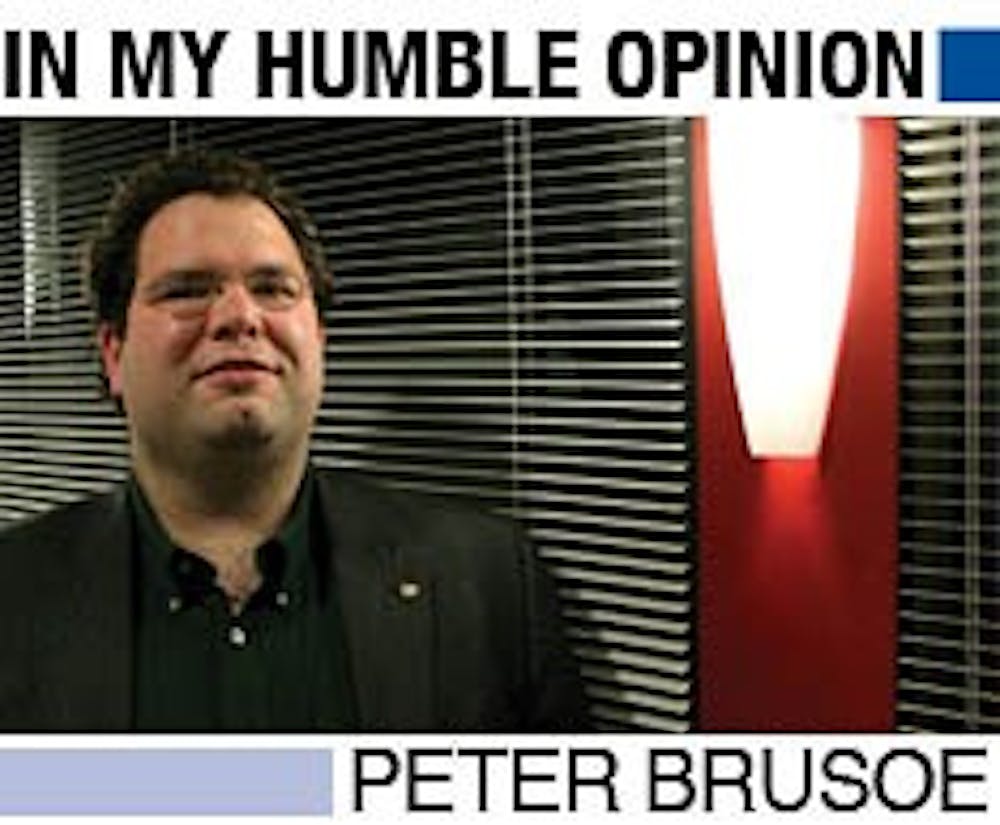What do you get for your tuition? For most students, the reward comes in one of three ways.
You take a class. You can go into a classroom, learn from an expert in the field, sit in a Torquemada-inspired chair, work on a graffiti-covered desk, bathe in the glow of an overhead projector and use a great library.
Or, for the same fee, you can pursue an internship. You go find an opening in an office and apply for the position. Then you can pay round-trip metro fare to go to Capitol Hill, or some federal agency, so you can work for free in exchange for the hands-on experience. There are some hidden costs, though, such as not being able to use your meal plan for lunch, an increased dry cleaning bill and the loss of income by not being able to work a part-time job.
And finally, for the same fee, you can write your thesis or dissertation. You find a really interesting question, work with dedicated faculty, spend long hours in the library and go blind from reading books. You can spend hundreds of dollars of your own money photocopying materials, paying for critical resources needed for your dissertation, or paying to travel to do field research with no recourse for reimbursement. If you choose to work while finishing your thesis or dissertation, you delay the time to graduation and thus increase the length of time that you are taking out student loans.
All of these are great ways of learning, and help to better prepare students to change the world. Indeed, most AU academic programs require that a student do some combination of all three. However, should the university charge you the same amount of money for each of these three activities? Probably not. Tuition monies should be used to cover the costs to the institution for providing the experience leading to academic credit. Taking a class requires more university resources than doing either a dissertation or an internship. At the same time, doing an internship or writing a dissertation often requires more out of pocket expenses than taking a class.
If the university were serious about trying to save students money, it would develop two tiers of tuition and fees. The first tier would be for taking classes at the normal cost of credit hour. The second tier would only be for internships and dissertation credits. The lower tier fees would reflect the true cost to the university for students pursuing these two educational options.
The effect of these lower-priced tuition and fees has serious implications for the student body. For our existing students, it would remove some of the class biases tied into internships. Many working- and middle-class students must take part-time jobs in addition to studying and interning. If we created this lower fee, it would put more money in their pocket, which would allow students to be able to focus on their studies, internships and research.
Secondly, it would reduce student debt upon graduation, ensuring that students are able to retire debt quickly. This gives a certain amount of flexibility in choosing an emotionally rewarding career and not necessarily worrying about money. It may also mean that they are able to donate money back to AU.
Thirdly, it would allow AU to show it is really concerned about the rising costs of higher education and is taking competitive steps to lessen the cost of tuition. It would allow us to competitively position ourselves against other D.C. schools that charge the same amount for a class as an internship.
While this is not a budget year, I would hope that the student leadership, university administration and our board of trustees pursue this idea and maybe turn it into service to the student body.
Peter Brusoe is a doctoral student in the School of Public Affairs and a campus affairs columnist for The Eagle.





